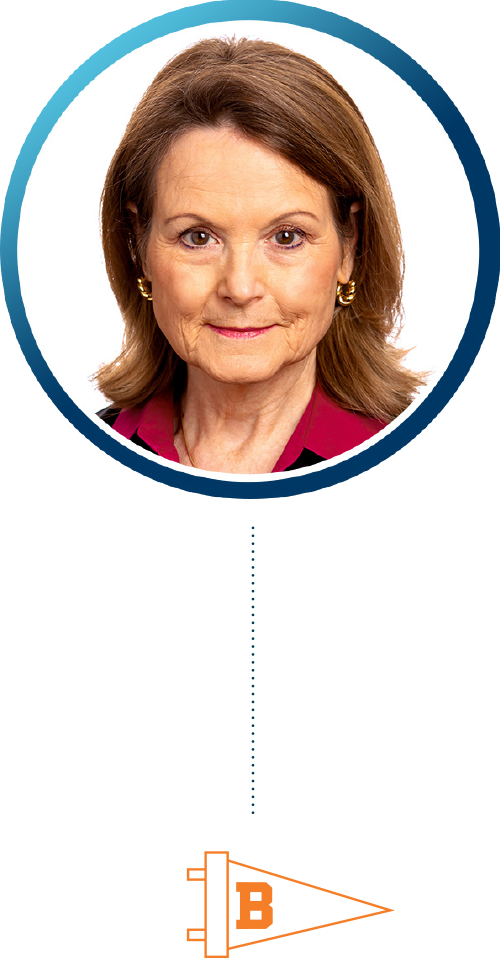
I am pleased to have the opportunity to share with you some of the accomplishments that the Freeman College of Management has achieved in the last year.
For the second consecutive year, the Freeman College was ranked a Top 20 Undergraduate Business School by Poets&Quants — making us the only school on this short list that does not have an MBA program. This ranking is based on the quality of our incoming classes, student satisfaction with their Bucknell experiences, and their success obtaining a career in their chosen field after graduation. We are also celebrating being recognized as a UNPRME Champion, one of only three U.S. colleges and one of 50 globally to earn this accolade (P.3).
In the pages that follow, we detail the refinement of our curriculum (P.2), global learning opportunities (P.7), and the accomplishments and growth of our faculty (P.4). In addition, you’ll see a snapshot of the Class of 2027 — the largest yet (P.2). More than 200 of its members joined our college, tipping our total enrollment over 750.
Perhaps most importantly, this report highlights the distinctive strengths of the Freeman College: interdisciplinary experiential learning, powerful mentorship and community, and a focus on the importance of well-rounded leadership, business impact and strong ethics.
We continue to work tirelessly to provide our students with a distinctive education that prepares them for success in the business world and beyond. Many thanks for all the ways you support us!
’ray Bucknell!
Cynthia P. Guthrie
Interim Dean of the Freeman College of Management
Contents
The Freeman College of Management Advisory Board
Michael Dominguez ’91, chief investment officer and senior managing director, Providence Equity Partners
David Granson ’93, P’24, managing director, Goldman Sachs
Lori Hartman Greeley ’82, chief executive officer, Serena & Lily
Jim Howland ’82, P’19, managing director and operating partner, Morgan Stanley Capital Partners
Brad Langer ’96, P’26, managing director, co-manager and principal, BBH Capital Partners
Paul Ridder ’93, P’24 (chair), former regional vice president, Flowers Foods; president, Tasty Baking Company
Susan Barrett Roddy ’98, managing director, consumer, food & retail group, Houlihan Lokey
Dave Sharpe P’24, partner, national professional services group, PwC U.S.
Blake Silverman ’05, president, Silverman Group
Todd Singleton ’88, former senior managing director, Accenture
Paul Sturman ’83, M’84, P’26, executive adviser, KKR & Co.
Robin Poliner Suskind ’94, managing director, KBW, a Stifel Company
Alyson Weenig Welch ’96, P’27, chief revenue officer, Neo4j
Data Analytics Advisory Board
Brian Coleman ’02, director of supply chain data science and network optimization, GSK
Scott Feit ’92, P’20, P’23, co-owner, Prime Pensions
Taylor Lukof ’03, founder and CEO, ABR Dynamic Funds
Jim Sarrail ’90, senior director of customer success, Moody’s Analytics
Real Estate Board
Bruce Burkard ’90, managing partner, Four Corners Properties
William “Chip” Douglas ’81, managing director, Lanark Management
Brett Earnest ’03, vice president, Clark Construction Group
Peter Elfers ’83, P’19, vice president, Van Houten Corporate Real Estate
Adam Frazier ’99, president and CEO, Columbia Property Trust
Lauren Gilchrist ’07, executive vice president, market leader, Newmark
Gene Gorab ’85, P’12, P’16, president and CEO, Greenfield Partners
Dave Henry ’71, P’12, co-founder, Peaceable Street Capital
Tom Howland ’91, P’23, head of RE investment banking, Piper Sandler Companies
Steven Kohn ’81, president and vice chairman, Cushman & Wakefield
Bill Krokowski ’84, principal, Requity Real Estate Group
Scott Lawlor ’86, P’27, founder and CEO, Waypoint Residential
Andy Merin ’70, executive vice chairman, Cushman & Wakefield
Michael Ritz ’01, executive vice president, the Albanese Organization
Rich Robbins ’70, president, Wareham Property Group
Gary Scott ’86, president, Allen Tate Realtors
Blake Silverman ’05, president, The Silverman Group
Jennifer Beauchamp Tuhy ’97, chief financial officer, Hudson Yards
Peter Van Emburgh ’02, global head of real estate, CBRE
Trevor Wilson ’93, managing partner and founder, Ridge Capital Investors
Student Managed Investment Fund Board
Bobby Le Blanc ’88, P’18, president, Onex
Joe Quintilian ’03, co-founder, Anja Labs
Sue Cleaver Valenti ’84, P’21, former managing director, Wells Fargo Securities
Bill Vogel ’73, managing principal, Montag & Caldwell

The Road Less Traveled
With its most recent curriculum revision, the Freeman College adopted four new minors in addition to its existing real estate and management options. It also repositioned its management & organizations (MORS) major to offer concentrations in global management, managing for sustainability, entrepreneurship and human resource management.
These changes broaden students’ ability to craft custom academic paths to fit their specific interests and future goals. By combining experiences and coursework across all three of Bucknell’s colleges, Freeman students are exposed to a wide array of perspectives, modes of thinking and ideas that reach far beyond the scope of traditional management curricula.
The student-centric approach to academic paths differentiates the Freeman College, and is a key component of its growing reputation as a leader in the discipline. Named “a top 10 undergraduate business school to watch” by Poets&Quants for Undergrads, the college is poised to continue its efforts to offer a world-class student experience and transformative educational opportunities.

Applicants
Admitted
(25.8% admit rate)
Enrolled
(36% yield)

Professor Melissa Intindola
management & organizations
More than Management
“This is the kind of knowledge that isn’t commonly taught at the average business school,” says Professor Melissa Intindola, management & organizations.
Having produced two comprehensive reports detailing its successful efforts to integrate the PRME initiative — from identifying high-priority SDGs to creating a student-led ambassador program to promoting peer-to-peer engagement — the Freeman College proves its championing of these ideals, not as buzzwords, but as driving concepts that fuel each course and inform each decision.
New Minors Expand Interdisciplinary Opportunity

A Fascinating Future
But rather than bemoaning its existence or denying the opportunity it brings, Street and Wilck decided to investigate how accountants could harness ChatGPT. They published an article in the Journal of Forensic and Investigative Accounting proposing five principles to effectively and safely leverage ChatGPT and other large language models (LLMs) in the practice of accounting. “ChatGPT provides general knowledge about the accounting domain and can even suggest some techniques to mitigate fraud risks, but ultimately, it lacks the nuance and expertise of a true accounting professional,” Street says. “We believe that LLMs can produce a good first draft of written text. They can draft tax memos, emails to clients or even help you explore a new industry or topic.”
Despite those positive attributes, the team identified significant weaknesses in ChatGPT. “Its knowledge is an inch deep and a mile wide,” Wilck says. “It looks promising the first few times you use it, but you can discover the limits of its expertise if you try.” Pointedly, they realized the potential (and high likelihood) for ChatGPT and other LLMs to produce false information that could be presented as fact.
Lawson, along with Street and a worldwide group of professors, put the tool to the test on accounting assessments, testing its depth of knowledge. “ChatGPT did provide answers to accounting exams,” says Lawson. “But it did not perform as well as our students.”
In their collective opinion, Pandora’s box has been opened and will not be shut. “There is no ignoring tools like ChatGPT,” says Street. “Professionals should learn to harness their capabilities and strengths while remaining aware of their weaknesses. Human skill is still critical.”

Renewing Wonder
Now, she carries that mentality into the Freeman College of Management, where she’s teaching Bucknell designers to call on their inner child and think imaginatively. “You can’t be so serious when thinking about a design problem,” she says. “Like children, you have to stay curious.”
Expanding our faculty
Background: doctorate in management strategy and organizations, Federal University of Paraná, Brazil
Area of expertise: innovative networks
James Paine, assistant professor, analytics & operations
management
Background: doctorate in management science, Massachusetts Institute of Technology
Area of expertise: supply chains
Leila Soleimani, assistant professor, management & organizations
Background: doctorate in strategy, global management and entrepreneurship, University of Calgary
Areas of expertise: entrepreneurial exit, new venture team composition, internationalization
These new faculty members join more than 40 colleagues across the college’s five academic majors:
Accounting // Business Analytics // Finance // Management & Organizations // Markets, Innovation & Design
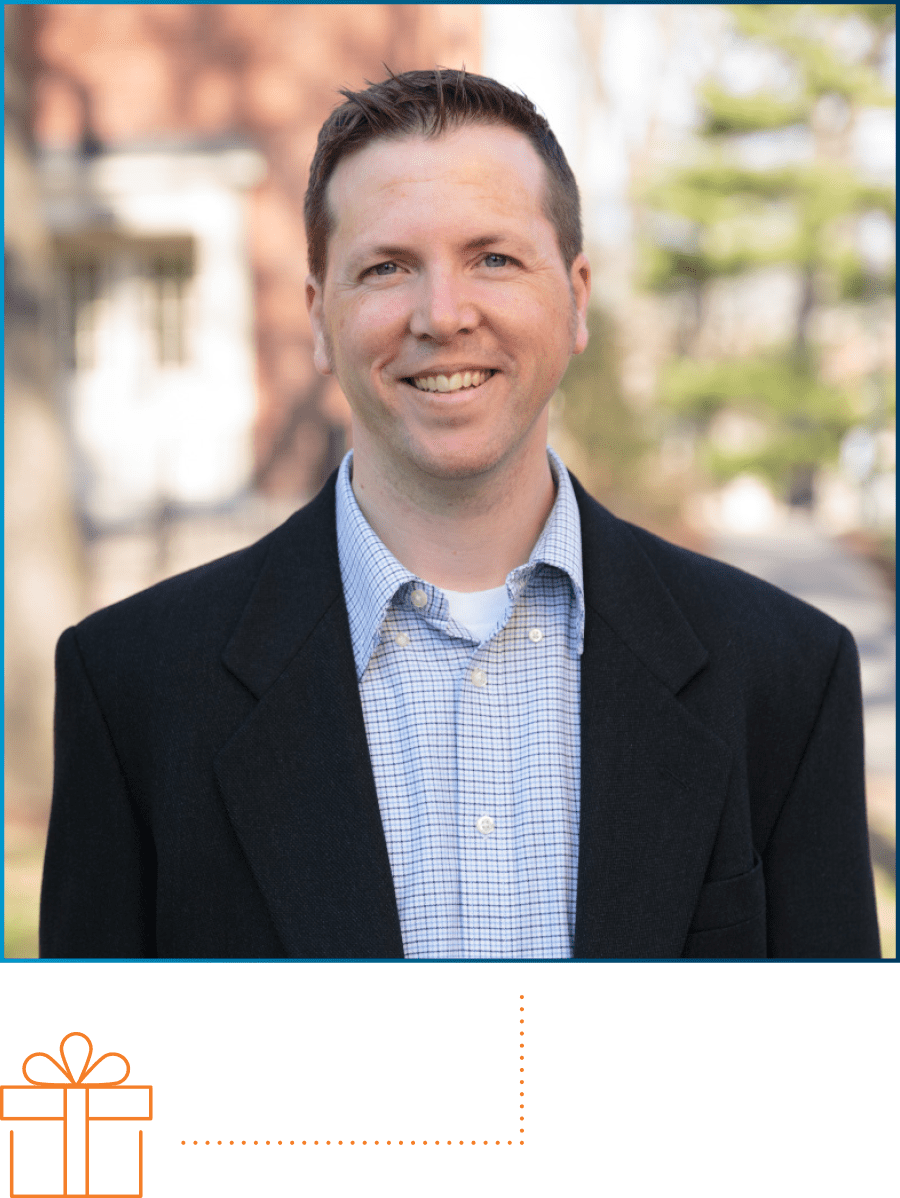

Welcome to
the World

During a 2023 experiential learning trip, students traveled to Seattle to learn from professionals at Microsoft (pictured), Tableau, Oracle and Expedia.
Welcome to the World

Experiential opportunities that extend learning outside the classroom are a defining element of the Freeman College of Management. Freeman students have access to rich, transformative experiences: from networking events with professional experts, to day trips exploring the financial and real estate industries in New York City, to immersive, extended experiences in Seattle, Sydney and Singapore.
Bucknell alumni and families play a key role in facilitating these opportunities. “I can pick up the phone, call our alumni and say, ‘We have students who are interested in a certain industry or location. Can you host us for a day or engage with our students in another way?’ ” says Missy Gutkowski, assistant dean for experiential learning. “Even if their answer is ‘No, I can’t,’ they almost always add, ‘But did you call this person?’ The community is powerful.”
This network has enabled the college to expand experiential learning opportunities. “Parents of incoming first-year students offer to come and speak or to host students at their place of employment before their child is officially enrolled at Bucknell,” says Gutkowski. “They are eager to help our students move forward and thrive.” Upon graduation, students can’t wait to take part in the giving side of the experience. “Students make strong connections, develop mentors, secure internships and jobs — they gain multiple touch points — which makes the value of their Bucknell experience palpable,” Gutkowski says. “They want to pass that on, and since they’re so willing, we’ll be able to keep growing.”
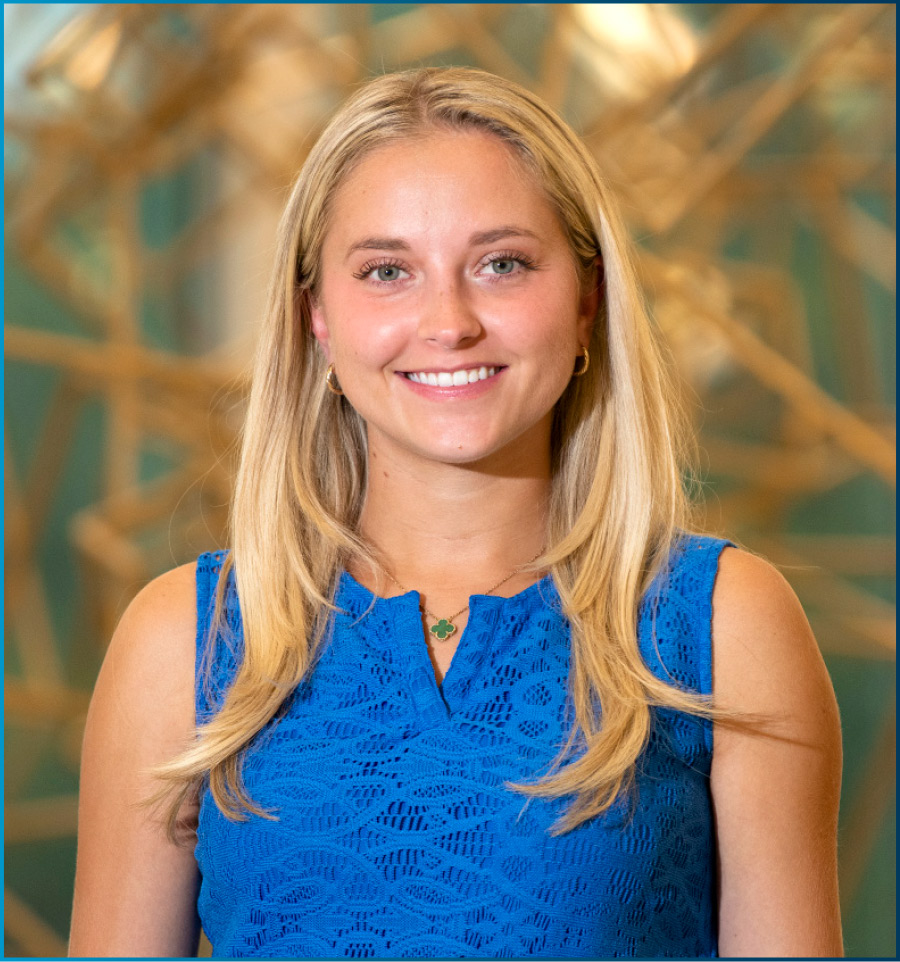

Hollie Walters ’24
global management and political science, participated in a parliamentary internship program in London in 2022
At the Crossroads: Sustainable Management
The course includes site visits to government, NGO and private-sector organizations, universities, energy facilities, and historical, cultural and natural sites.
“We visit the main Ministry of Costa Rica that runs the SDG program for the United Nations, meet with the national electric utility as they institute renewable energy across the entire country, and learn how various entities are infusing economic, social and environmental justice through their missions,” Boyd says. “And then of course we’re engaging with ecotourism organizations as well — whether they run zip-lining excursions, or sustainable agriculture practices, or they help to protect the leatherback turtles on the west coast by studying microplastics on the beach and advocating for change.”
In addition to focusing on SDGs across business entities with Boyd, students benefit from Jansson’s expertise in renewable energy. He offers explanation and narrative as students tour the country’s energy facilities and learn about the hydroelectric, volcanic geothermal, solar and wind technologies that power nearly 98% of its energy needs.
“We get to be in the mountains or out on the coast or in the rain forests,” Boyd says. “Costa Rica is an ideal place to discover the amazing diversity of the global natural environment, and to study how organizations set strategic priorities and conceive, enact, measure and report on SDGs.”
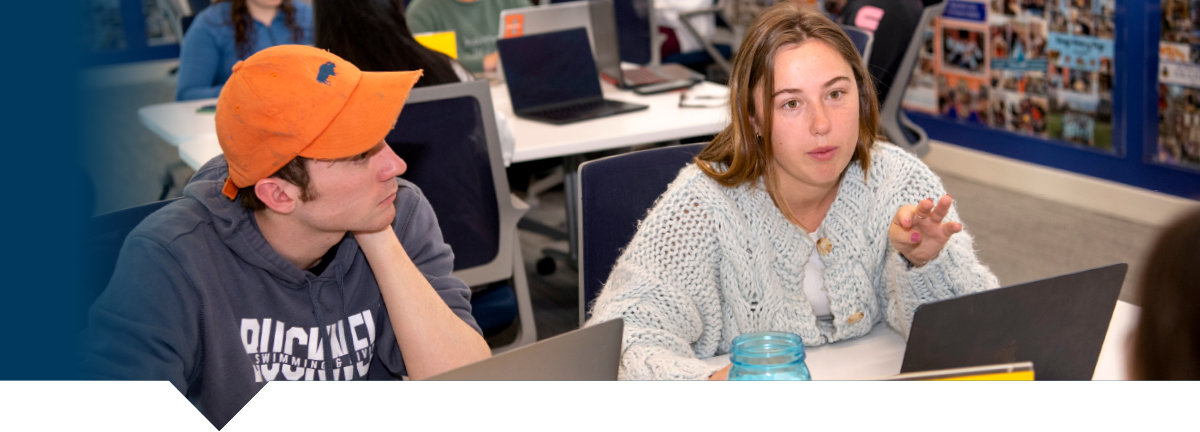
Coursework — with Impact
In the Freeman College of Management, these aren’t philosophical questions to ponder in quiet spaces — they’re the driving force shaping the curriculum. Two landmark experiences — Management 101 and the culminating project — occur on opposite ends of the student experience and galvanize the vision that Bucknell hopes its students will adopt: one of tangible impact and purposeful leadership.
Traditionally taken in the first or second year, Management 101 brings students together to create companies from the ground up, and emphasizes how important it is for businesses to recognize their social responsibilities. In partnership with local nonprofit organizations, each student company conceptualizes, pitches and executes a business plan while developing a service project to benefit their partner. They then use their profits to support and undertake the project. “101 has an excellent reputation for teaching students that businesses can and do have a responsibility in a multitude of ways,” says Terrance Burke, management 101 coordinator.
Not only do the nonprofits benefit from the students’ work, but the students also gain a valuable understanding of humanitarian issues. “It brings together theory and practice through the creation of real companies that create social impact,” says Robyn Eversole, the Howard I. Scott Professor of Practice in Social Entrepreneurship. “We teach them how to identify an issue and do something about it.”
The course precedes the formation of the Freeman College by several decades, and alumni look back at Management 101 as a pivotal benchmark in their educational experience. “Grads from the early years still talk about 101 as being transformational and helping them determine what they wanted to study,” says Professor Melissa Intindola, management & organizations.
“I still use it today,” says Laura Reed ’01, a senior manager at Comcast Business. “It was important to how I perceive my responsibilities as a leader — how to approach the community aspect and how to build a strong team. Management 101 was probably the most actionable class I had because it applied to the real world.”
Now, Reed is playing an integral role on the other side of the management experience — she’s sponsoring a culminating management project. “The students I’m working with aren’t evaluating a theoretical data set somewhere in the cloud,” Reed says. “They’re working with real-world data and making a real impact.”
Culminating projects offer another opportunity for collaboration through purpose-driven, experiential learning. Partnering, again, with real-world companies and organizations — like Comcast Business with Reed — students offer consulting and technical services as they execute high-level projects.
Across the college, culminating projects are direct reflections of the 101 framework — relationship-driven, actionable and impactful. But now, students approach their work with the expertise they’ve gained from their unique path through the Freeman College’s curriculum. For example, students in MORS 400 — the culminating experience for management & organizations majors — aid communities in the lower anthracite coal region through a series of revitalization projects. By integrating community engagement into coursework, students learn to be concerned with more than profits or performance metrics, and to realign their focus toward prosperity, people and place.
“We’re creating good humans who will end up in leadership positions where they can feel empowered to make a difference,” Intindola says. “We want them to be the ones who recognize problems and say, ‘How can I do something about this?’ ”
Projects with Purpose
MORS 400
The Lesson: After gaining an understanding of the consulting process, students took on consulting roles that fit within the management & organizations department’s focus on community impact.
The Impact: Students consulted with local community leaders as they completed a succession of interrelated projects that ultimately resulted in the development of a community center. “Our students helped them think through strategy, structure, process elements and the beginnings of a strategic plan,” says Neil Boyd, the David J. ’85 & Deborah West Professor in Management. “We helped them develop fundraising and marketing plans, and guided them through the process to purchase a building. Now, we’re helping them think through program development, renovation elements and facilities.”
ANOP 400
The Lesson: Students used language processing and sentiment analysis to help Comcast evaluate the emotional tone of chat messages and determine if there is a variation between current and new customers.
The Impact: “We were really impressed by how quickly the students made progress with initial data points so that they could start thinking about how to make the project actionable,” Reed says. “Students were able to deliver insights and recommendations that we can apply to our marketing and other functions in the future. Some of the information they shared will be presented at our quarterly business review. I’m excited to go there and say, ‘Look at some of the great work that was done by this group of students at Bucknell. Look at all we accomplished.’ ”
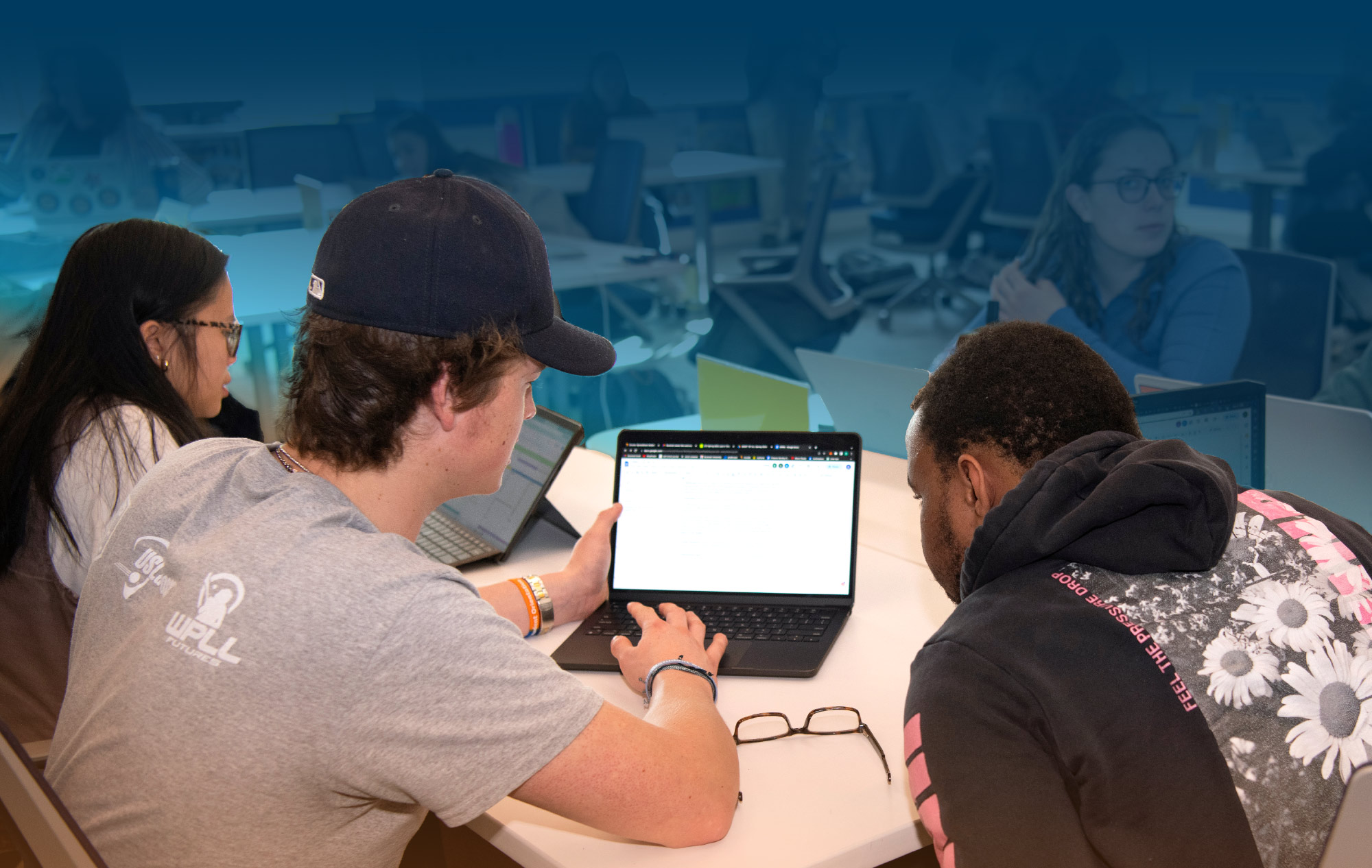
Where it All Leads

19
Top 10 school to watch
for the second time
Two students recognized
in the “100 Best & Brightest Business Majors of 2023”

Where the Freeman College Class of 2022 is Working*


Employer Snapshot
Deloitte
Goldman Sachs
HubSpot
JPMorgan Chase
Johnson & Johnson
KPMG
Madison Square Garden
Entertainment Corp
Paramount
PwC
RSM
STARTING SALARY By Major
Finance
Business Analytics
Managing for Sustainability
Markets, Innovation & Design
Accounting**
Global Management
Management & Organizations
Top Employer Industries
Consulting
Financial Services
Information Technology
Entertainment and Athletics
Computer Science
**In April, Bucknell was ranked No. 18 by The Wall Street Journal for highest accounting salaries at private institutions.

College Stats


First-year retention rate

Six-year graduation rate


Management Majors, 2023-24
Business Analytics
Finance
Markets, Innovation & Design
Management & Organizations
Global Management
Managing for Sustainability
Entrepreneurship
Human Resource Management
Management Minors, 2023-24
Business Analytics
Entrepreneurship
Human Resource Management
Management
Real Estate
Faculty PUBLICATIONS
Xinwei Chen, visiting assistant professor of analytics & operations management, co-authored the paper “Same-day Delivery with Fair Customer Service,” published in the European Journal of Operational Research in 2023.
James Paine, professor of business analytics, authored “Dynamic Supply Chains with Endogenous Dispositions” in System Dynamics Review in 2023.
William Meek, Campbell Rutledge Jr. and Eleanor Rutledge Professor of Management & Entrepreneurship, co-authored the paper “The Death and Rebirth of the Entrepreneurial University Model,” which was published in Academy of Management Perspectives in 2023.
Ryan Stauffer, professor of finance and Perricelli Faculty Fellow, and Leila Soleimani, professor of management & organizations, co-authored “New Venture Teams and Acquisition: Team Composition Matters,” published in the Journal of Small Business in 2022.
Annetta Grant, professor of markets, innovation & design, co-authored the paper “How Institutional Logics Shape Fairness in Crowdsourcing: The Case of Threadless,” which was published in the International Journal of Research in Marketing in 2022.
Supporting Outstanding Freeman Faculty

JAMES ANDRADAS ’23
business analytics
Generosity Drives Impact
Financial Aid
Giving Impact 

- David J. ’85 & Deborah West Professorship in Management
- Susan & Scott Perricelli Fellowship for Entrepreneurial Finance
- Kenneth W. Freeman Professor & Dean of the College of Management
- Christian R. Lindback Chair in Business Administration
- James and Elizabeth Freeman Chair in Management
- Campbell Rutledge Jr. and Eleanor Rutledge Chair in Management
- Howard I. Scott Professor of Practice in Social Entrepreneurship
- Howard I. Scott Associate Professor of Managerial Practice
- Howard I. Scott Professor
- Holmes Professorship in Management
- Kiken Family Chair in Management
- William H. Dunkak Chair in Finance
- Sidney L. Miller Career Development Assistant Professor of Leadership
- Sidney L. Miller Career Development Assistant Professor of Analytics & Operations Management
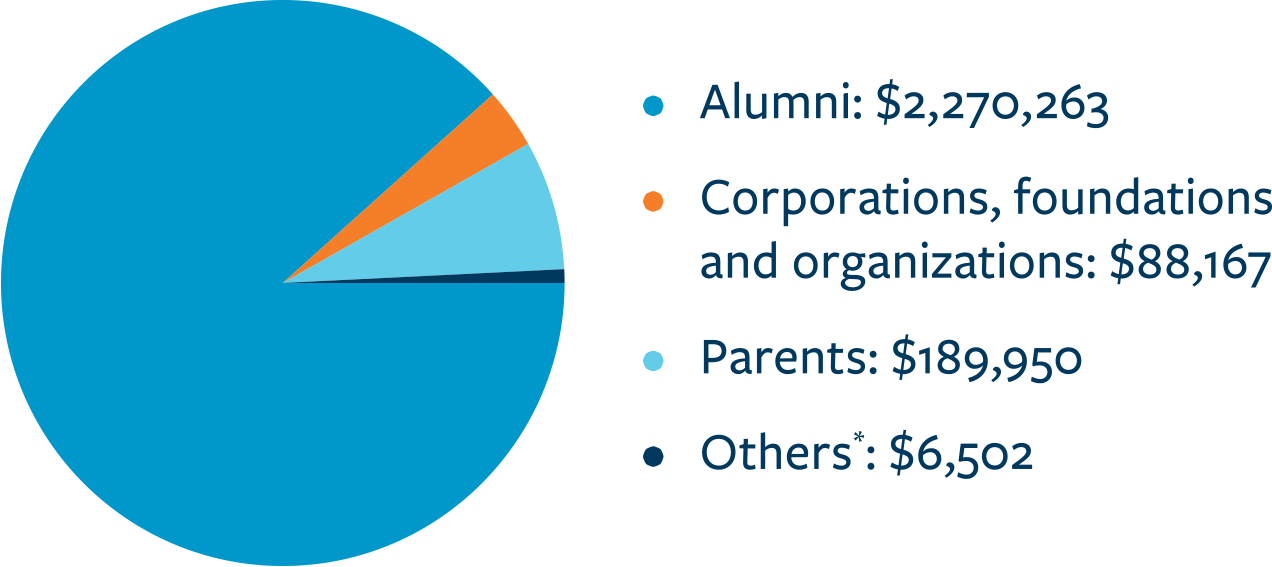
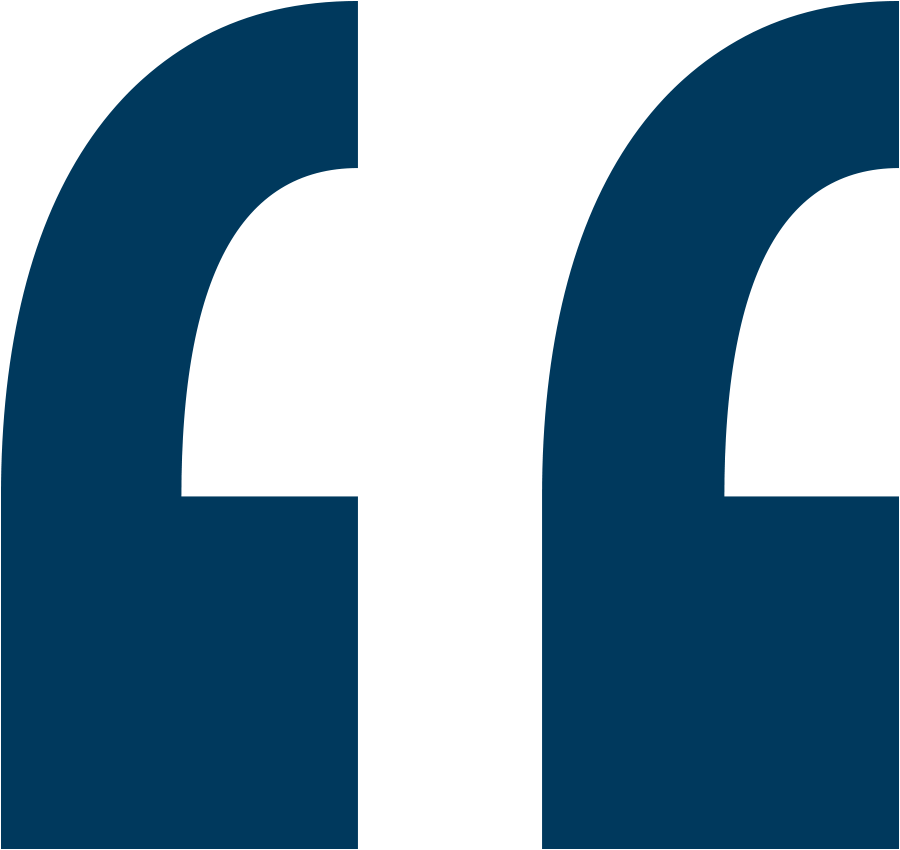
senior business consultant, innovation & experience design, EY US
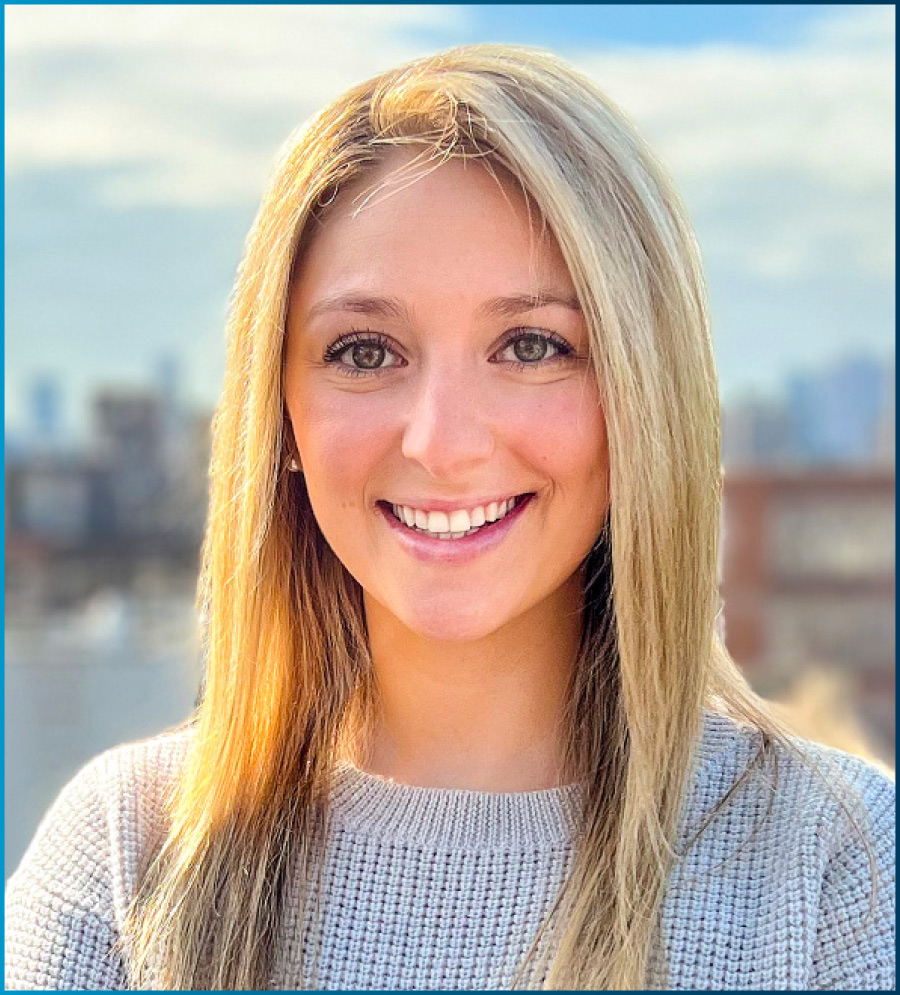
Enrich the Experience
It happens through exceptional experiences — in the classroom and outside of it — that shape unique mindsets.
Leaders who graduate from the Freeman College of Management credit their success to Bucknell, recognizing the impact not only of their management coursework, but also of the interdisciplinary experiences that informed their view of the world.
